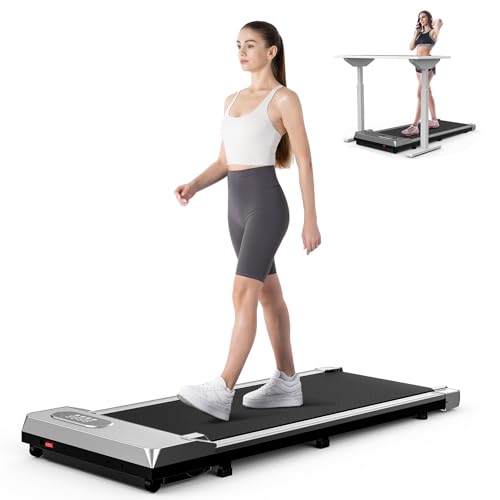Treadmills: A Comprehensive Guide to Understanding Their Functionality, Benefits, and Appropriate Selection
Introduction
Treadmills have become a staple in modern physical fitness routines, both in homes and gyms worldwide. just click the up coming website offer a practical and efficient way to preserve cardiovascular health, increase endurance, and help in weight management. This post explores the various kinds of treadmills, their advantages, functions to consider when purchasing, and some FAQs to assist users in making notified decisions.
Types of Treadmills
When it comes to selecting a treadmill, it is important to understand the various types readily available in the market. Here are the primary categories:
1. Manual Treadmills
- System: These treadmills have a basic style and rely on the user's efforts to move the belt.
- Pros: More budget friendly, quieter operation, no electrical power required.
- Cons: Limited functions, might not offer the exact same range of exercise strength.
2. Motorized Treadmills
- Mechanism: Powered by a motor that drives the belt, permitting users to stroll or perform at a set pace.
- Pros: Greater variety of speeds and slopes, geared up with various features such as heart rate monitors and workout programs.
- Cons: More pricey and might require more upkeep.
3. Folding Treadmills
- System: Designed for those with restricted area, these treadmills can be folded for simple storage.
- Pros: Space-saving, often motorized, flexible features.
- Cons: May be less long lasting than non-folding models.
4. Business Treadmills
- Mechanism: High-quality machines developed for use in health clubs and gym.
- Pros: Built to withstand heavy use, advanced features, typically consist of guarantees.
- Cons: Pricey and not ideal for home use due to size.
5. Curved Treadmills
- Mechanism: A special design that allows users to propel the belt using their own energy.
- Pros: Offers a more natural running experience, promotes better running form.
- Cons: More expensive and can be noisier.
| Treadmill Type | Pros | Cons |
|---|---|---|
| Handbook | Budget friendly, no electrical power needed | Restricted features |
| Motorized | Range of speeds, advanced features | Upkeep needed |
| Folding | Space-saving, often motorized | May do not have resilience |
| Commercial | Constructed to last, professional-grade functions | Costly |
| Curved | Natural running experience, promotes excellent kind | Higher cost |
Benefits of Using Treadmills
Treadmills provide numerous benefits that can add to one's total health and fitness goals. A few of these advantages consist of:
- Convenient Workouts: Treadmills enable users to work out indoors regardless of weather conditions.
- Cardiovascular Health: Regular use can improve heart health by increasing stamina and promoting healthy flow.
- Weight Management: Effective for burning calories, which assists in weight reduction and management.
- Personalized Workouts: Users can manage speed, incline, and duration to produce individualized workout experiences.
- Security: Treadmills provide a foreseeable surface, minimizing the danger of falls compared to outside running.
- Multifunctional: Many treadmills included functions like heart rate displays, workout programs, and even entertainment systems.
Picking the Right Treadmill
When picking a treadmill, potential purchasers must consider numerous crucial factors:
Features to Consider:
- Motor Power: Typically determined in horsepower (HP), a motor strength of a minimum of 2.5 HP is suggested for serious runners.
- Belt Size: A longer and larger belt accommodates numerous stride lengths, providing convenience throughout workouts.
- Slope Settings: Adjustable slope features mimic outdoor hill running and can increase exercise intensity.
- Weight Capacity: Ensure the treadmill can support the user's weight for security and durability.
- Console Features: Look for easy to use dashboards, exercise programs, and Bluetooth compatibility for streaming music or other functions.
Budget plan Considerations
- Under ₤ 500: Entry-level manual treadmills ideal for casual walkers.
- ₤ 500 - ₤ 1,500: Mid-range motorized treadmills that provide more functions and much better durability.
- ₤ 1,500 - ₤ 3,000: High-end models with advanced technology, bigger motors, and longer service warranties.
- Over ₤ 3,000: Commercial-grade treadmills ideal for frequent use in fitness centers or training facilities.
Often Asked Questions (FAQs)
1. How typically should I utilize a treadmill?
It is recommended to utilize a treadmill a minimum of 3 to 5 times a week, including different strength levels for best results.
2. Can I lose weight by using a treadmill?
Yes, consistent use of a treadmill can contribute to weight-loss, especially when integrated with a balanced diet and strength training.
3. What is the very best speed to walk on a treadmill for novices?
A speed of 3 to 4 miles per hour is an ideal range for beginners. It's necessary to begin slow and slowly increase speed as convenience and endurance enhance.
4. Do I require to utilize a treadmill if I currently run outdoors?
Utilizing a treadmill can provide additional advantages, such as controlled environments and differed workouts (incline, intervals) that are not constantly possible outdoors.
5. How do I keep my treadmill?
Regular upkeep includes oiling the belt, cleaning up the deck and console, and examining the motor for optimum efficiency.
Treadmills are vital tools for those aiming to boost their physical fitness levels in a regulated and convenient manner. With numerous types available, comprehending their functions and benefits is important for making a notified purchase. By thinking about individual exercise requirements, space schedule, and budget plan restrictions, people can find the most suitable treadmill that fits their lifestyle. Incorporating treadmill exercises into a well balanced fitness regimen can lead to better health results and an enjoyable workout experience.

